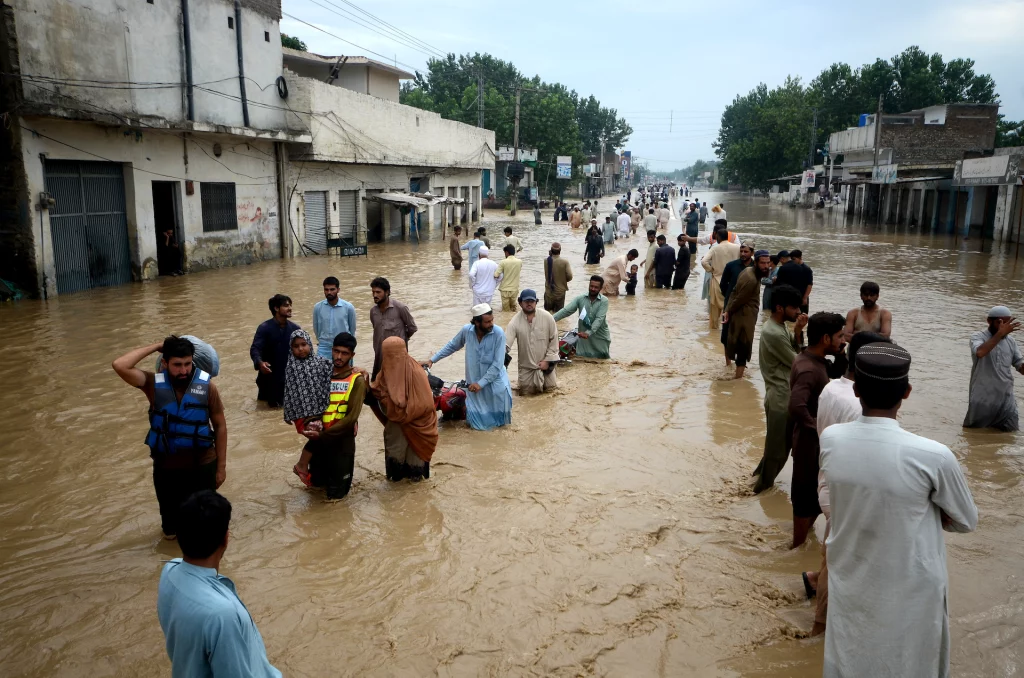In the Face of Injustice: Pakistan’s Climate Crisis and the Islamic Call to Act
Pakistan is experiencing the devastating consequences of climate change in real time. Floods, heatwaves, droughts, and glacial melt are not future risks, they are present, painful realities. In the summer of 2022, a third of the country was submerged. This year, we are facing some of the highest temperatures recorded globally. The impacts are destroying lives and livelihoods, disproportionately affecting the poorest and most vulnerable.
Over time, I came to realise that the climate crisis isn’t separate from my faith, it is deeply connected. Islam places care for the Earth at the heart of how we live and worship. It does not just ask us to acknowledge harm, but to take responsibility for repairing it.
From Disaster to Responsibility
The 2022 floods in Pakistan weren’t a one-off disaster. Pakistan ranks among the top 5 most climate-vulnerable countries globally. Farmers in Sindh and Balochistan struggle with shifting rainfall patterns, while glacial lakes in the north are flooding. And now, recurring heat waves with temperatures above 50°C are making parts of the country nearly uninhabitable.
It is particularly heartbreaking that Pakistan, one of the countries most vulnerable to climate-induced disasters, contributes less than 1% to global greenhouse gas emissions. Much of this crisis is fuelled by the actions of large corporations operating under a global capitalist system that prioritises profit over sustainability. The devastating floods and extreme weather events it faces are not merely natural hazards but symptoms of a deeper global crisis rooted in overconsumption, environmental neglect, and systemic injustice.
As the Qur’an warns, “Corruption has spread on land and sea as a result of what people’s hands have done, so that Allah may cause them to taste ˹the consequences of˺ some of their deeds and perhaps they might return ˹to the Right Path˺” (Surah Ar-Rum, 30:41). This verse, interpreted by scholars to include environmental degradation, highlights that the destruction of the natural world is not separate from human morality. It reflects a spiritual disconnection and a collective failure to act as khalifah (steward) of the Earth (Surah Al- Baqarah, 2:30) and serves as both a consequence and a call to return to a path of balance, responsibility, and justice.
Prophet’s Practice: Sustainable living
The Prophet Muhammad ﷺ lived a life of environmental balance and restraint. He forbade the cutting of trees without need and instructed his companions to care for animals, plants, and land with gentleness.
The Prophet ﷺ provided a powerful example of environmental responsibility, forbidding the waste of water even while performing wudu from a flowing river. Given in a context of abundance, this instruction highlights the importance of practicing conservation at all times, not only in moments of scarcity. Today, Pakistan faces severe water shortages driven by both climate change and poor management. Such conditions point not only to poor planning and governance, but also to how far we’ve moved from the Prophet’s ﷺ teachings on living responsibly and caring for the Earth. The Prophet ﷺ also encouraged the planting of trees and cultivation of the land as ongoing acts of charity, stating, “If the Final Hour comes while you have a shoot of a plant in your hands and it is possible to plant it before the Hour comes, you should plant it.” This hadith carries a powerful message of hope and responsibility, reminding us that even in moments of uncertainty or crisis, caring for the environment is still a meaningful and necessary act.
What Can We Do as Muslims
- Practice moderation and avoid waste. The Prophet ﷺ lived a life of simplicity and cautioned against extravagance. As Muslims, we are encouraged to be mindful of our consumption and reduce waste in our daily lives, whether it is water, food, or material goods.
- Commit to justice and speak out for those affected. In Islam, justice is deeply connected to sustainability. Standing up for climate justice especially for communities and countries withstanding the worst of a crisis they did little to cause is part of our moral and spiritual responsibility.

By Suha